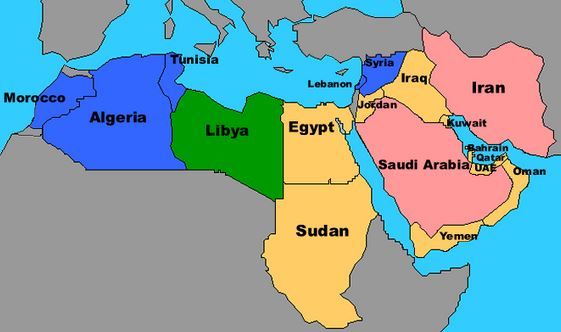There is slow growth in the economies of the Middle East and North Africa (MENA), partly due to regional tensions as well as a challenging external environment. Seven countries in the region are seeing slowing economic growth, rising unemployment, mounting inflation, and a depletion of fiscal buffers.
In order to avoid social upheaval and political discontent, urgently-needed reforms that could significantly boost growth and create employment are being postponed.
According to the Quarterly Economic Brief, by the World Bank Group, these nations should seize the opportunity to put through structural reforms that could break the vicious circle of political instability and slow growth.
Raising public sector wages and subsidies must stop
Shanta Devarajan, World Bank Chief Economist for the Middle East and North Africa region, says:
“Governments in these countries cannot afford to continue short term policy actions such as increasing public sector wages and subsidies.”
“These policies exacerbate a situation which is driven by long-standing structural weaknesses, including labor market rigidities, complicated and opaque regulations, infrastructure deficiencies, regressive and inefficient subsidies, and inadequate social safety nets.”
The report, titled Middle East and North Africa: Growth slowdown heightens the need for reforms, assesses the macroeconomic situation of Libya, Yemen, Jordan, Lebanon, Iran, Tunisia and Egypt, described as the region’s most vulnerable economies. The authors stress the importance of reforms urgently needed to reverse the deterioration of these economies.
The authors outline the main challenges in these countries and which reforms they should focus on. They warn governments that raising public sector wages and general subsidies place enormous fiscal pressures on governments and reduce the fiscal space available for spending priorities on infrastructure, education and health.
Reforms needed to boost economies and employment
Lili Mottaghi, World Bank MENA Economist and principal author of the report, argues:
“Policymakers have resisted reforms lest they increase social discontent. But reforms can both create fiscal space and help restructure the economy towards job creation and inclusive growth.”
Oil-importing countries, including Lebanon, Jordan, Tunisia and Egypt, have suffered from years of underinvestment, especially in infrastructure and industry. Egypt still has several barriers for doing business, while the private sector is dominated by nepotism and cronyism.
The key challenges in Tunisia continue being social and economic disparities across regions of the country.
Public services in the Lebanese economy are inadequate, public schools are overcrowded, access to government clinics and hospitals is limited for lower-income households, especially in rural areas.
For macroeconomic stability, Jordan is in urgent need of reforms to streamline business regulations, remove labor market rigidity, and improve the efficiency of public spending. The influx of refugees from Syria has “stretched all these sectors to the limit.”

MENA stands for Middle-East and North Africa.
Private sector growth hindered by many factors
Libya, Yemen and Iran need to diversify their economies, after years of mismanaging their petroleum resources.
Private-sector development in these seven nations is being hindered by the public and quasi-public sectors, the authors explain.
Devarajan says:
“The lack of access to financing, uncertainty in the legal environment and a fragile security situation are preventing private sector growth.”

